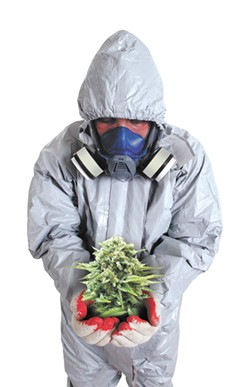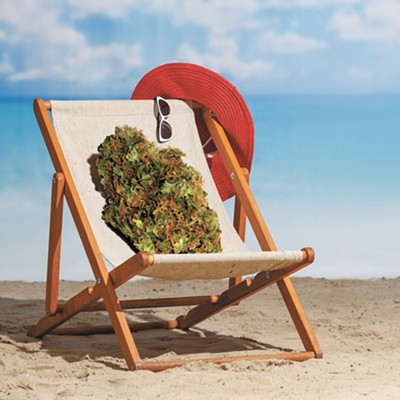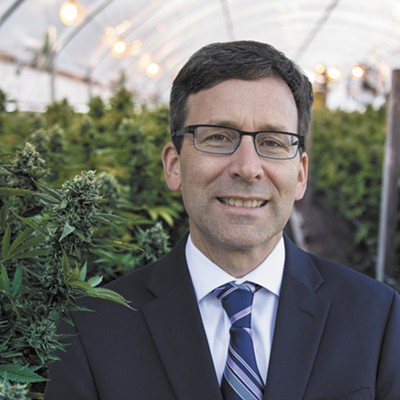Johnny Law's long arm will soon be reaching into the grow rooms of cannabis producers in Washington state to test for prohibited pesticides. For consumers, and as a public health issue, it is a welcome and long overdue intrusion.
Earlier this month, the state's Liquor and Cannabis Board took a big step toward reining in scofflaw growers by announcing a new partnership with the Washington State Department of Agriculture. The agreement gives the WSDA funding (for specialized equipment and two trained employees) and authority to conduct random tests for disallowed pesticide use (in plants and concentrates, but not marijuana-infused products, like edibles) and enforce regulations when such violations are suspected.
"It will send a strong message to any producer applying illegal pesticides that they will be caught and face significant penalties, including possible cancellation of the license," Liquor and Cannabis Board Director Rick Garza says in a press release.
In December of last year, two of the biggest cannabis producer/processors in Washington learned that lesson the hard way when LCB-led inquiries into their alleged practices (the incident was termed "Pestgate") resulted in temporary but crippling shutdowns and fines. One of the companies, New Leaf Enterprises, had to lay off 90 percent of its staff as a result.
Both investigations were prompted by anonymous tips. Concerned dispensary owners and citizens, feeling state oversight is lacking, have been voluntarily taking matters into their own hands.
Dr. Gil Mobley, a devout anti-prohibition activist, and the Clean Cannabis Association initiated a rogue probe, as reported by the Stranger in March, into outlawed chemical residues on merchandise at stores statewide. They submitted a grab bag of recreational flower and concentrate products to a downtown Spokane lab, Trace Analytics, for testing and found contamination on 25 of 37 samples, often at shockingly high levels that suggest not incidental contact but deliberate use of banned pesticides.
One of the few samples that did pass the test was plucked from Spokane's own Kush Comfort Farms. Owners Josh Zaretsky and Daniel Harrington espouse an ethic of sun-grown sustainability that stands in stark contrast to what Harrington calls the "systemic root rot" of the cannabis industry: growers intentionally compromising their plants with dangerous products to maximize profits.
"Consumers have the right to know if their herb is consciously and lovingly produced and processed," says Harrington.
Credentials from a third-party organization like California's Clean Green Certified are beginning to help Kush Comfort Farms communicate that commitment. Retailers and customers are taking note of such labels, and at an increasing rate, says Cinder General Manager Kathryn Younker. "Before it was something people just weren't doing," she says. ♦



















